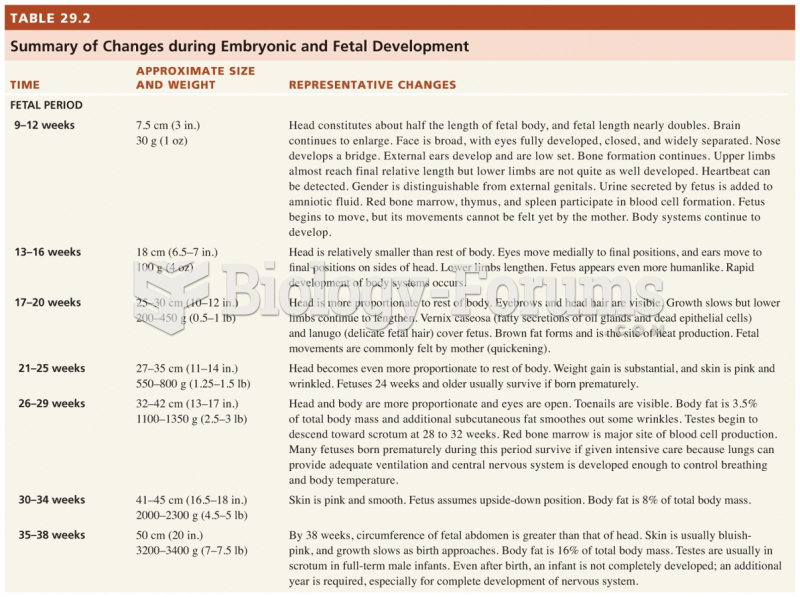|
|
|
The B-complex vitamins and vitamin C are not stored in the body and must be replaced each day.
Children of people with alcoholism are more inclined to drink alcohol or use hard drugs. In fact, they are 400 times more likely to use hard drugs than those who do not have a family history of alcohol addiction.
On average, the stomach produces 2 L of hydrochloric acid per day.
Disorders that may affect pharmacodynamics include genetic mutations, malnutrition, thyrotoxicosis, myasthenia gravis, Parkinson's disease, and certain forms of insulin-resistant diabetes mellitus.
Interferon was scarce and expensive until 1980, when the interferon gene was inserted into bacteria using recombinant DNA technology, allowing for mass cultivation and purification from bacterial cultures.
 The Black Death spread over much of Europe in a three-year period in the middle of the fourteenth ce
The Black Death spread over much of Europe in a three-year period in the middle of the fourteenth ce
 In 1891 William Dean Howells championed the poetry of Emily Dickinson: “This poetry is as characteri
In 1891 William Dean Howells championed the poetry of Emily Dickinson: “This poetry is as characteri





